Charlie Gard: Court hears hospice best option for baby
- Published
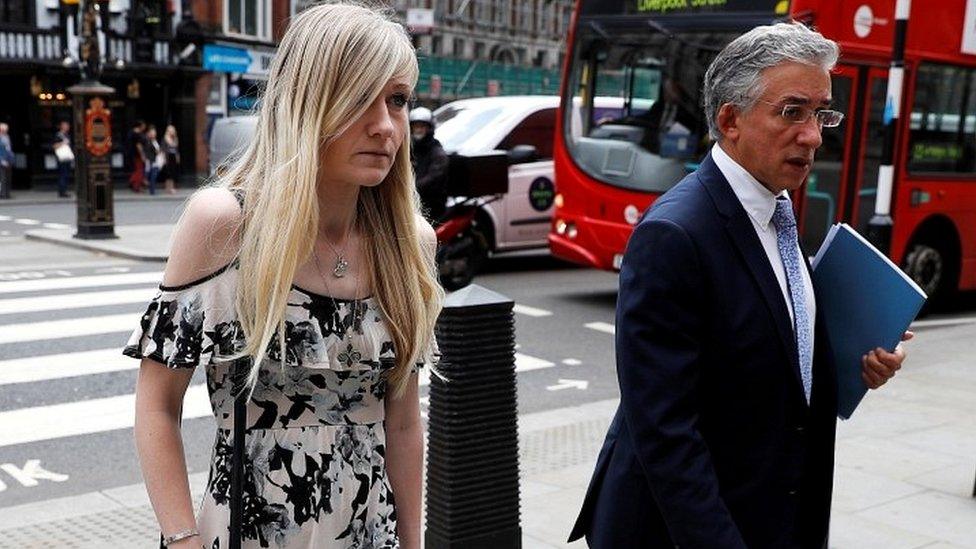
Connie Yates and Chris Gard's lawyer said Great Ormond Street Hospital was obstructing attempts to take Charlie home
Moving Charlie Gard to a hospice to die would be the best option for the terminally-ill baby, a court has heard.
The 11-month-old's parents had returned to the High Court to seek permission to take him home for "a few days of tranquillity outside the hospital".
But Great Ormond Street Hospital (GOSH) said there were practical problems with that proposal, for example his ventilation equipment would not be able to fit through their front door.
The judge will rule on Wednesday.
At Tuesday's hearing, the judge said hospital managers had suggested a hospice would give Charlie and his parents the space, privacy and protection they needed.
'Really upsetting'
Chris Gard and Connie Yates have pleaded for a paediatric intensive care doctor to come forward to help their son die at home.
"We promised Charlie every day we would take him home. It seems really upsetting after everything we've been through to deny us this," Ms Yates said.
Grant Armstrong, representing the parents, told Mr Justice Francis that his clients' "last wish is that Charlie dies at home".
He suggested a portable ventilator and oxygen supply could be used but accused GOSH of "putting up obstacles".
Chris Gard: "We are so sorry we could not save you"
Lawyers for the hospital told the judge they "would like to be able to fulfil the parents' wishes... if it is safe and practicable and in Charlie's best interests".
However, Katie Gollop QC, who leads the hospital's legal team, said providing intensive care for Charlie away from a hospital was not simple.
Charlie's condition requires air to be forced into his lungs. She said as far as the hospital was aware invasive ventilation was only provided in a hospital setting.
Ms Gollop said Charlie would need to be "monitored by an ITU trained nurse at all times, with an ITU doctor on call and close at hand".
Such resources "cannot be provided by GOSH to Charlie at his parents' home", she said.
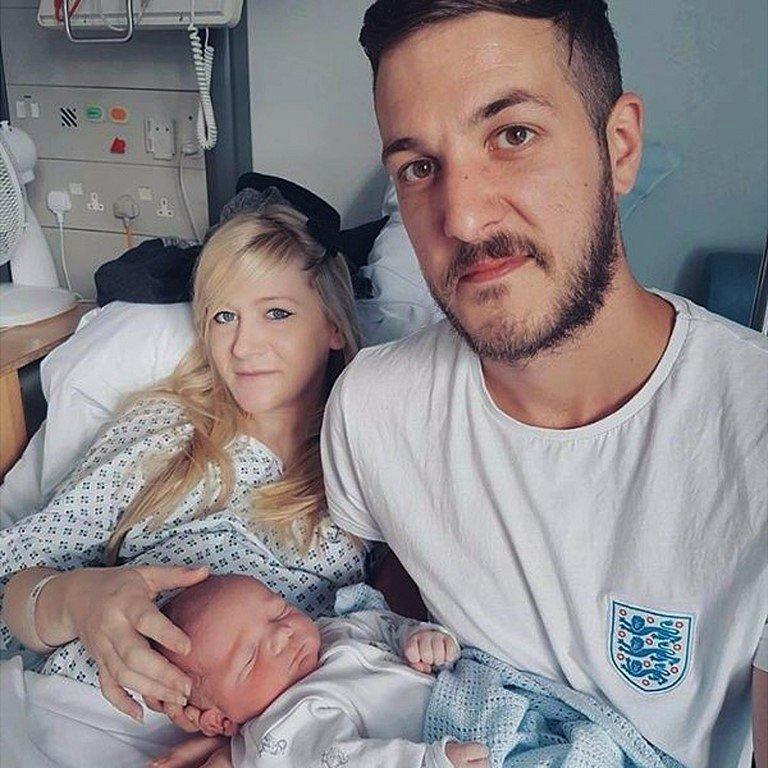
Charlie has been in intensive care at Great Ormond Street Hospital since October
Mr Justice Francis said: "If going home can be achieved within reason then I would like to achieve that for them."
He said he would make a final decision, about whether Charlie can be taken home, at 14:00 BST on Wednesday.
Charlie's parents, from Bedfont, west London, said they had been spending their "last precious moments" with their son.
Charlie has encephalomyopathic mitochondrial DNA depletion syndrome. He has brain damage and cannot move his arms or legs.
His parents had asked Mr Justice Francis to rule that their son should be allowed to undergo a trial of nucleoside therapy in New York, a move opposed by medics at GOSH who argued the treatment would be "futile".
The Family Division of the High Court heard on Monday that US neurologist Professor Michio Hirano was no longer willing to offer the experimental therapy after he had seen the results of a new MRI scan.
In a statement to the High Court, external, GOSH said Professor Michio Hirano had not taken the opportunity to see Charlie until last week, despite being offered the chance to do so by the hospital in January.
The hospital said it was also concerned the professor had declared a financial interest in some of the treatment he had proposed prescribing for Charlie.

Timeline of legal battle
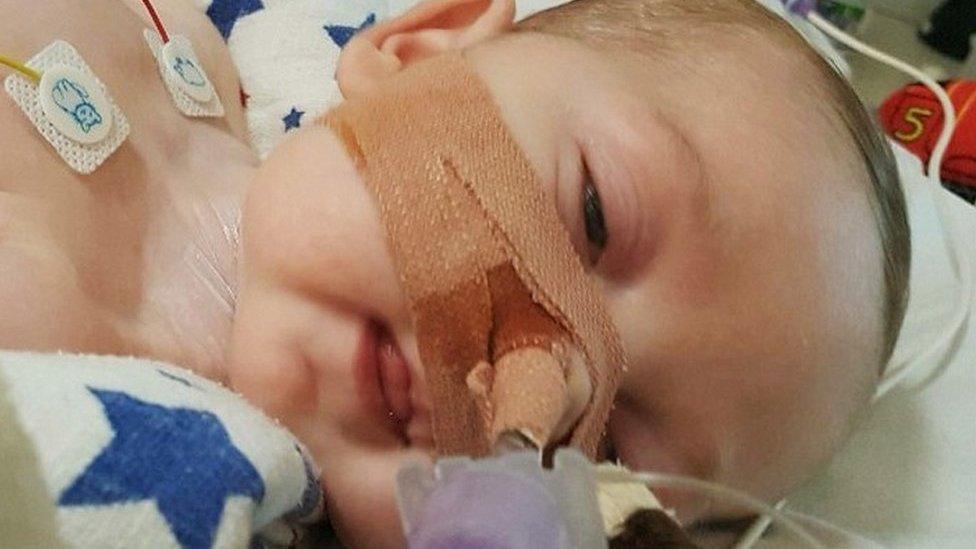
3 March 2017: Mr Justice Francis starts to analyse the case at a hearing in the Family Division of the High Court in London.
11 April: Mr Justice Francis says doctors can stop providing life-support treatment.
3 May: Charlie's parents ask Court of Appeal judges to consider the case.
23 May: Three Court of Appeal judges analyse the case.
25 May: Court of Appeal judges dismiss the couple's appeal.
8 June: Charlie's parents lose fight in the Supreme Court.
20 June: Judges in the European Court of Human Rights start to analyse the case after lawyers representing Charlie's parents make written submissions.
27 June: Judges in the European Court of Human Rights refuse to intervene.
3 July: The Pope and US President Donald Trump offer to intervene.
7 July: Great Ormond Street Hospital applies for a fresh hearing at the High Court.
24 July: Charlie's parents end their legal fight to take him to the US for treatment.
- Published25 July 2017
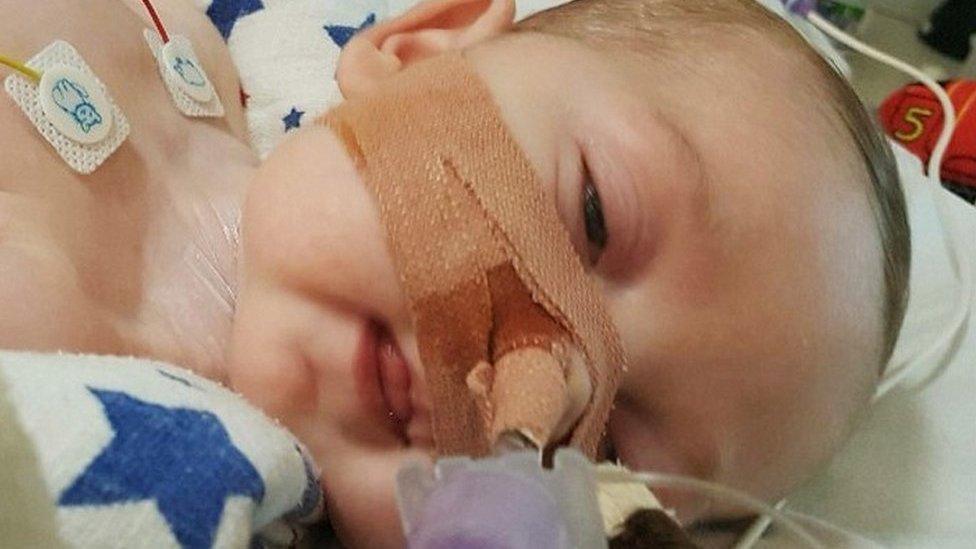
- Published23 July 2017
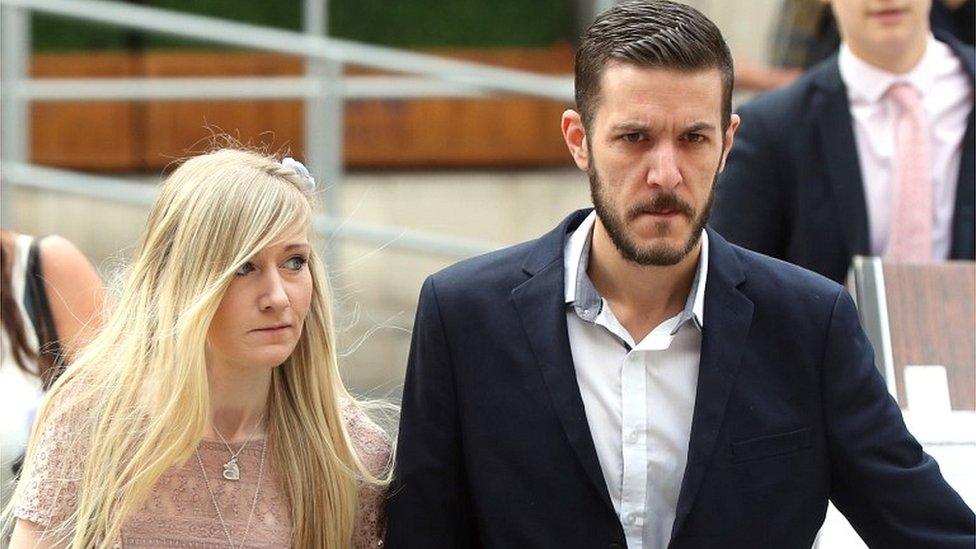
- Published23 July 2017

- Published27 July 2017
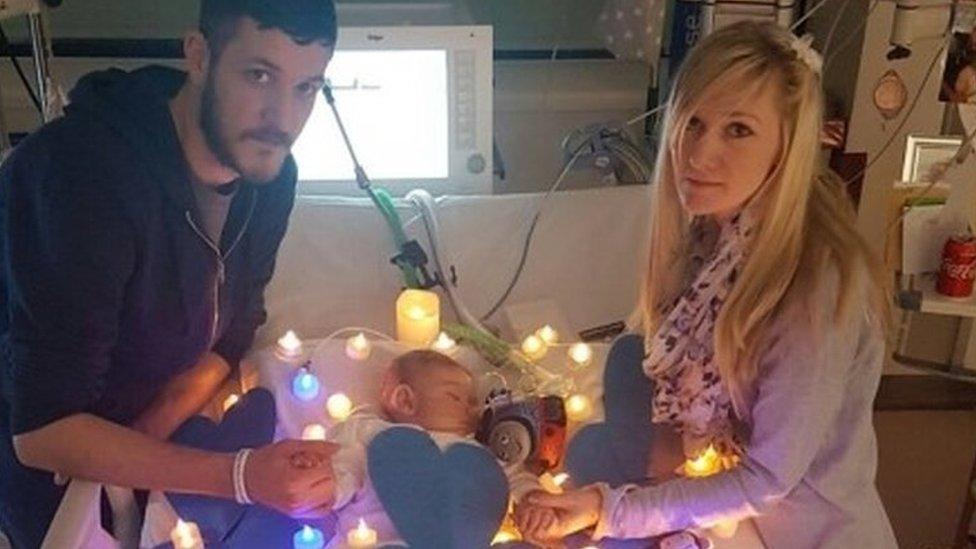
- Published21 July 2017
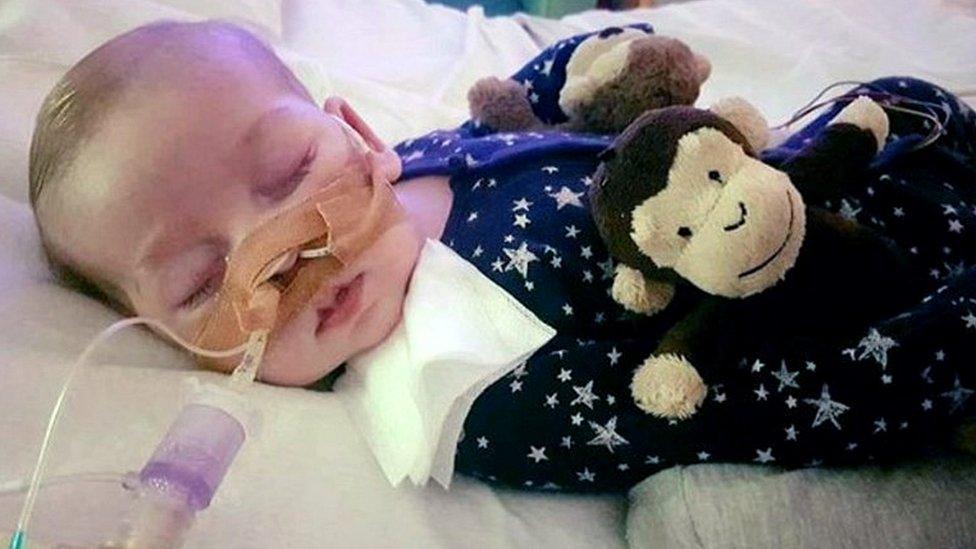
- Published17 July 2017
